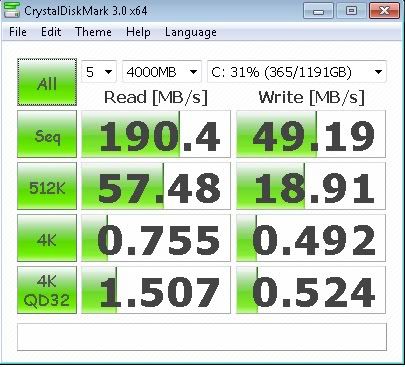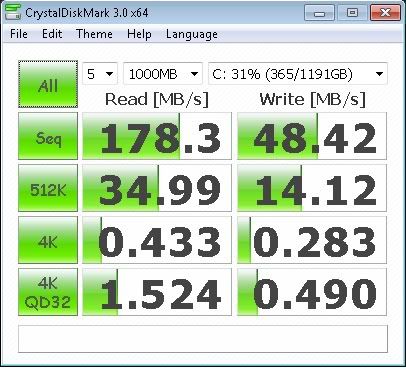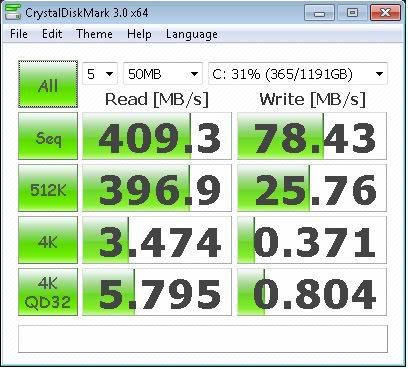LOCO LAPTOP
[H]F Junkie
- Joined
- May 4, 2006
- Messages
- 12,620
So got my hands on 2 new drives and a new motheboard that support sata 6.
Since I feel nice I wanted to post a few benchmarks to compare.
50MB run

100MB run

500MB run

1000MB run

EDIT: 9/27/10
2000mb run

4000MB run

All these test were done one at a time while the pc was doing nothing else to provide the best results.
Since I feel nice I wanted to post a few benchmarks to compare.
50MB run

100MB run

500MB run

1000MB run

EDIT: 9/27/10
2000mb run

4000MB run

All these test were done one at a time while the pc was doing nothing else to provide the best results.
Last edited:
![[H]ard|Forum](/styles/hardforum/xenforo/logo_dark.png)



